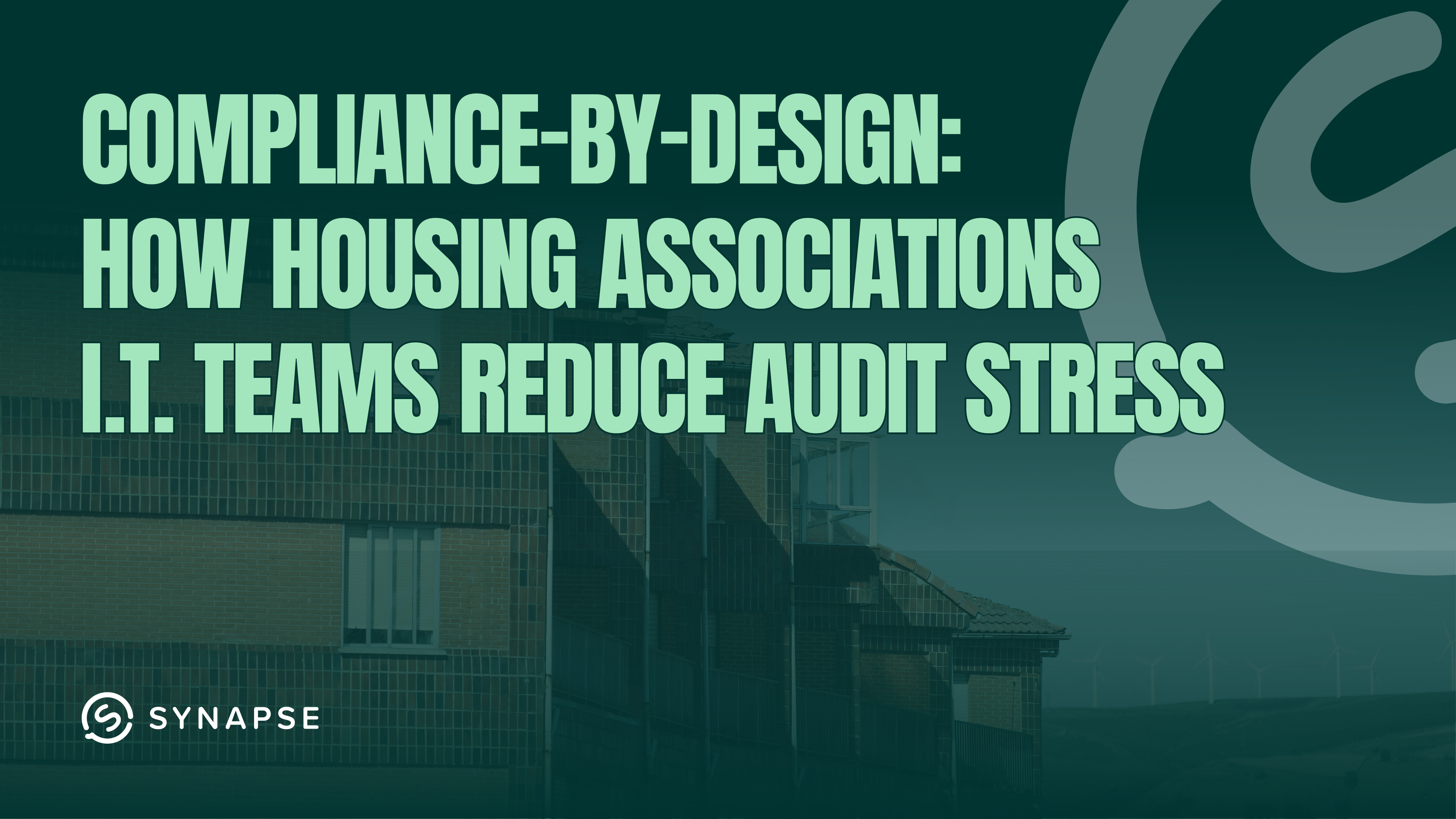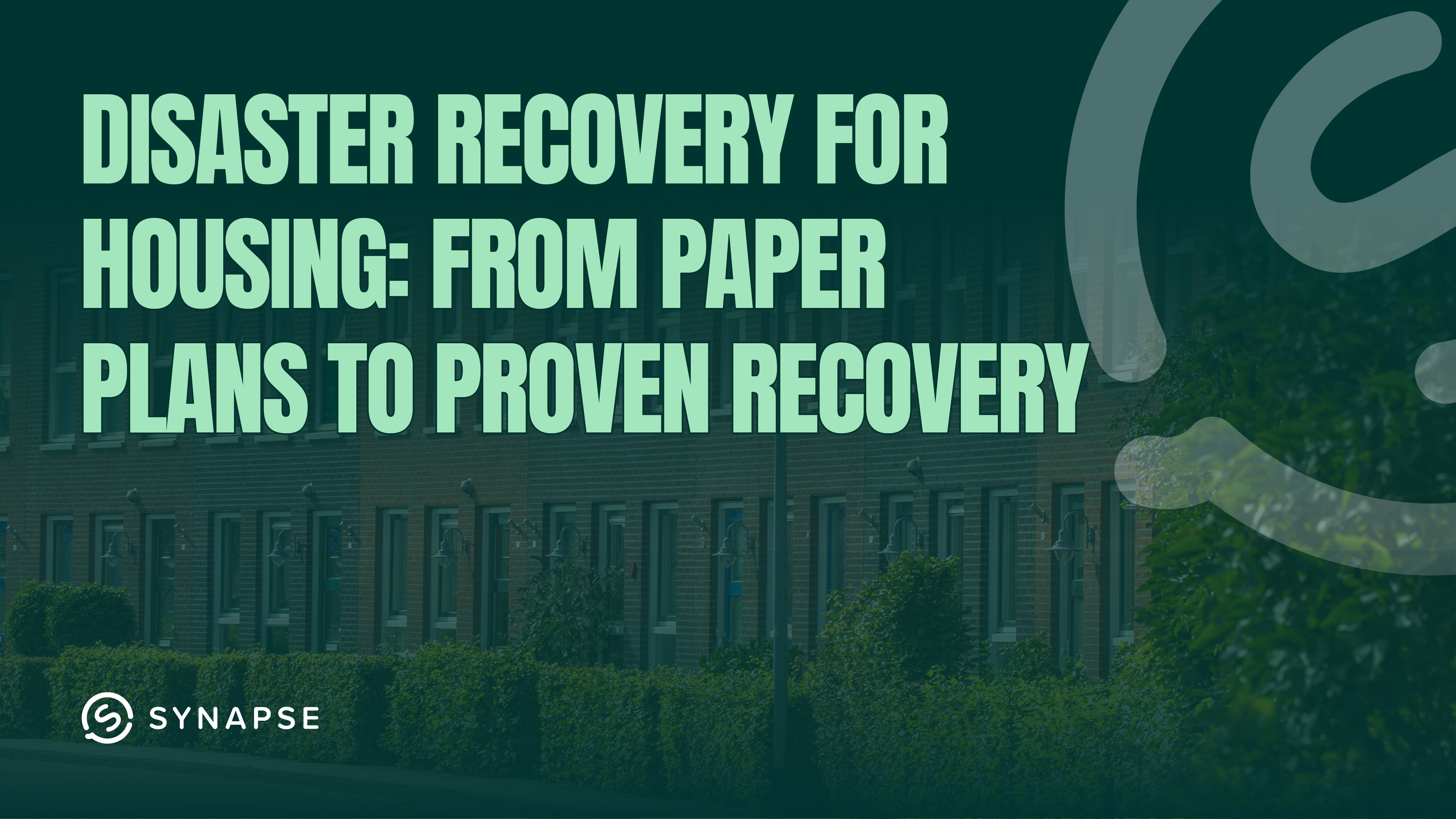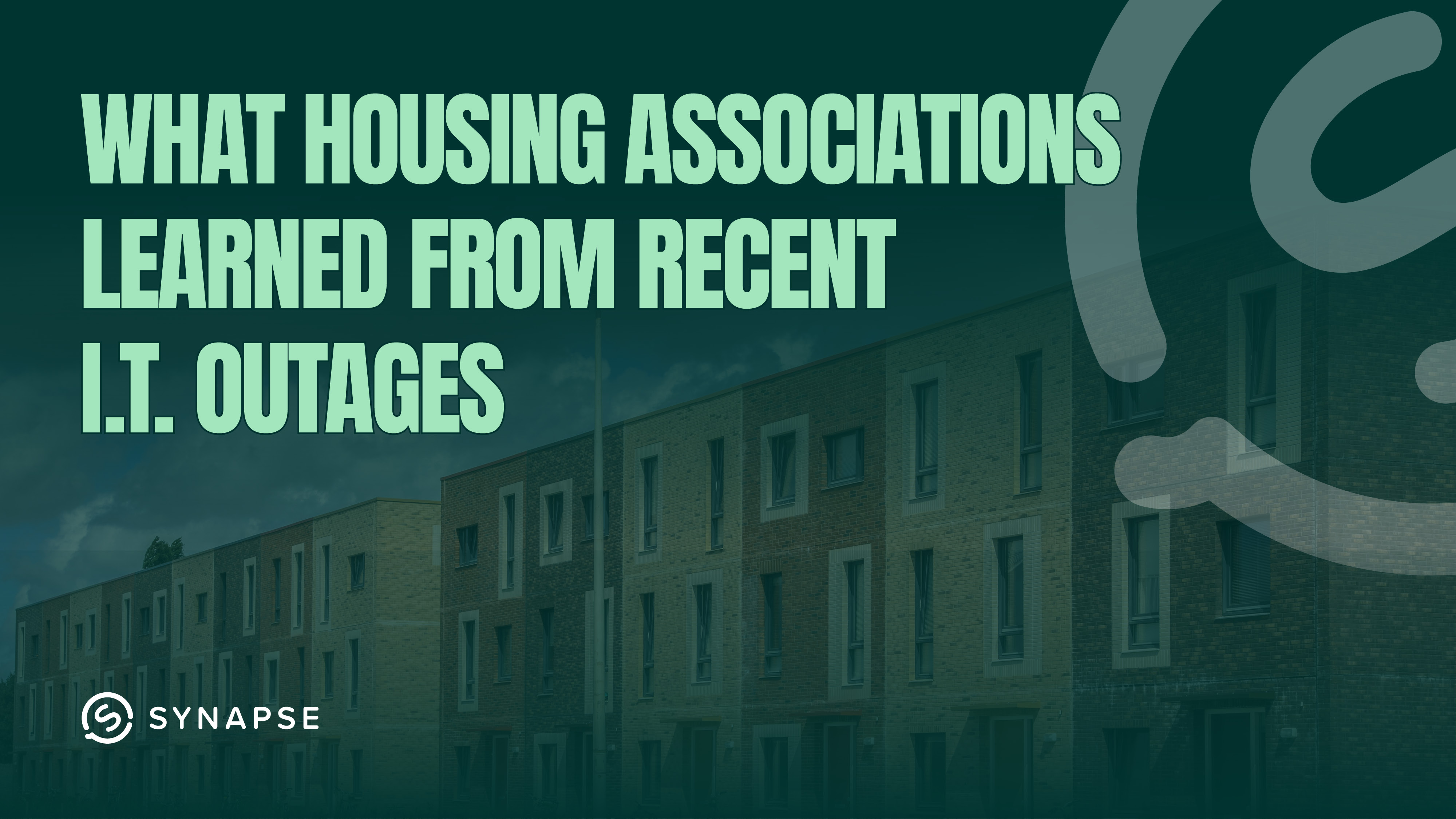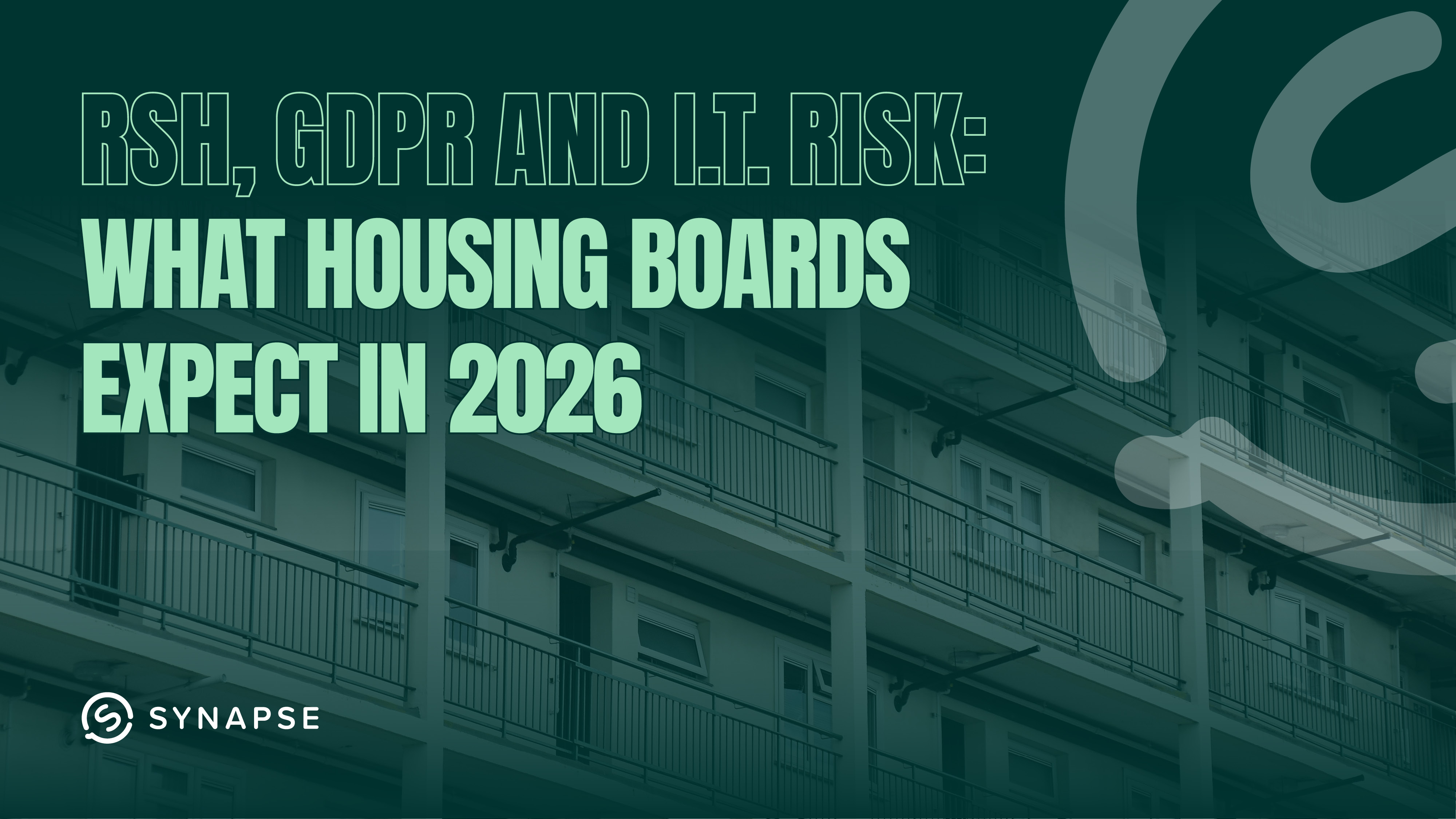.jpg)
When the U.K. National Cyber Security Centre (NCSC) releases its Annual Review, it should make every business leader pause. This year’s report is clear: cyber resilience is no longer just an I.T. issue. It’s a boardroom priority.
It’s not a technical footnote buried in an operations update. It’s a shift in how organisations must think about risk, continuity, and trust in a world where digital systems underpin everything we do.
What the NCSC 2025 Review Tells Us
The NCSC responded to 429 cyber incidents in the past year. Almost half of those were considered “nationally significant”. The year before, it was fewer than one hundred.
That tells us two things. First, attacks are increasing in frequency and sophistication. Second, the consequences are becoming more serious, especially across critical services like healthcare, finance, and education.
The Threat Has Escalated
Cyber threats are no longer confined to corporate networks or government systems. They’re hitting the infrastructure we all depend on.
The NCSC highlights that critical national infrastructure is now a prime target, with state-sponsored groups and organised criminal networks testing the resilience of essential services.
Accountability Is Rising
The upcoming Cyber Security and Resilience Bill will expand the scope of regulation, bringing managed service providers, data centres, and key suppliers into focus.
At the same time, the Cyber Governance Toolkit for Boards gives directors practical ways to understand and question their organisation’s resilience.
In other words, cyber security is no longer a technical compliance issue. It’s now a matter of governance and leadership.
Resilience Is About Recovery
The NCSC is shifting how we talk about resilience. It’s no longer about trying to prevent every possible attack. It’s about being ready to recover quickly and effectively when something happens.
As NCSC Chief Executive Richard Horne put it: “How will you continue when your I.T. is gone?” It’s an uncomfortable question, but one every board needs to answer honestly.
The Board’s New Role in Digital Continuity
In 2025, technology isn’t just an enabler of business. It is the business.
When systems fail, everything stops. Revenue, customer service, and reputation are all at risk.
That’s why cyber resilience has become a board-level issue. It sits alongside financial stability, regulatory compliance, and operational performance as a measure of organisational strength.
Cyber Risk Is a Strategic Risk
A ransomware attack can shut down an organisation faster than a supply chain failure or a financial shock.
Boards need to think about cyber resilience in those same terms: not as an I.T. concern, but as a strategic threat to continuity.
Boards Need Clear, Practical Information
Technical jargon helps no one. Terms like “mean time to detect” or “recovery point objective” are useful internally, but boards need the translation, what it means in terms of downtime, financial loss, or customer impact.
Accountability Starts at the Top
Every organisation should have a board member who sponsors cyber and resilience discussions.
Resilience indicators should be part of executive scorecards.
And leadership teams should be involved in crisis simulations, not just I.T. staff.
When the inevitable happens, preparedness comes from practice, not policy.
Invest in Recovery as Much as Defence
Perfect prevention doesn’t exist. The difference between a major incident and a manageable one is the speed of recovery.
That means investing in disaster recovery, backup-as-a-service and crisis management / fire drill playbooks that are tested and proven.
The Synapse View: Resilience Is the New Reliability
At Synapse, we believe that resilience is the next great differentiator. It’s not just about surviving a cyber incident. It’s about operating with confidence, knowing that you can adapt and recover whatever happens.
From Managed I.T. to Managed Continuity
Our clients are asking for more than uptime. They want predictability, assurance, and the ability to keep working under pressure.
That’s why we’re helping organisations shift from standard service level agreements to resilience guarantees - commitments to recovery time, data integrity, and business continuity.
From Protection to Proof
We align our services with NCSC standards and recognised frameworks so that resilience can be demonstrated, not just claimed.
Boards can see the evidence and report it with confidence to regulators, customers, and investors.
From Vendor to Partner
Synapse works as an extension of your team. We don’t just implement technology; we help model risk, run recovery rehearsals, and refine your playbooks so that when disruption strikes, everyone knows what to do.
Because true resilience isn’t theoretical, it’s practical and repeatable.
Five Questions Every Board Should Ask Now
1. Do we know our single points of failure?
If a key system failed today, how quickly could we recover and what would it cost each hour we were down?
2. When was our last full recovery test
Tests that fail teach us more than tests that are never run.
3. Are we measuring outcomes, not just controls?
Metrics like recovery time and user impact show whether we’re actually resilient.
4. Can our suppliers prove their resilience?
Every partner in your digital supply chain should have tested, documented recovery plans.
5. Do our leaders know how to act during an incident?
The best defence in a crisis is clear, practiced decision-making at the top.
The Boardroom Mandate for 2025 and Beyond
The NCSC’s message is simple but urgent: cyber resilience is now a matter of national importance and board-level responsibility. It’s time for boards to stop asking “Are we protected?” and start asking “Are we prepared to recover?” At Synapse, we help organisations answer that question with confidence. Our adaptive cloud, backup, and cyber protection services are designed to keep you running, no matter what the world throws your way. Because resilience isn’t about bouncing back.
It’s about never being knocked off course in the first place.
Talk to Us
If your organisation wants to build real resilience the kind that boards can stand behind we’re here to help. Talk to us today.
Blog & Articles
Posts



